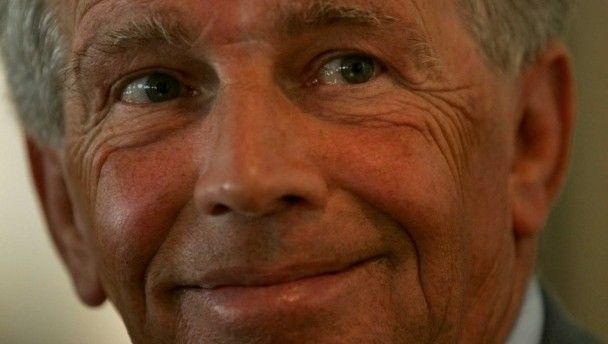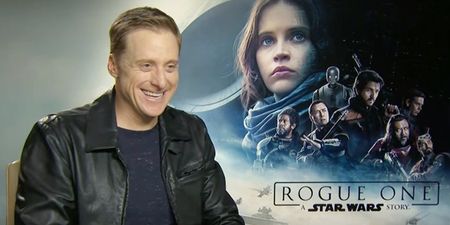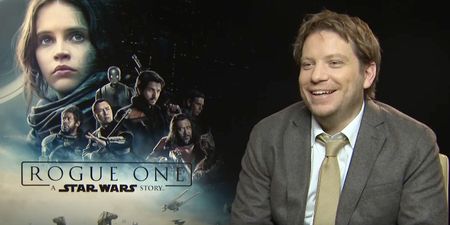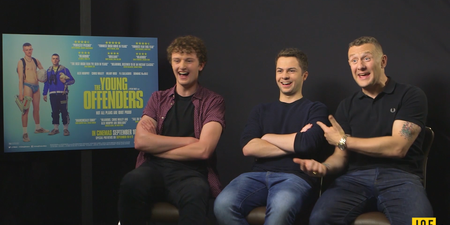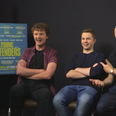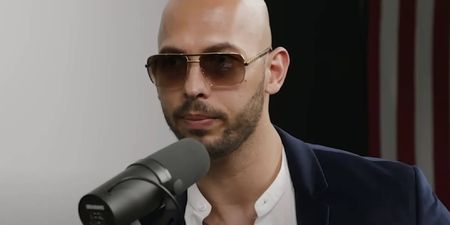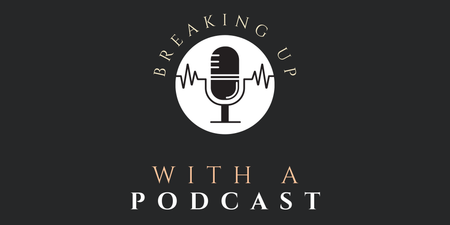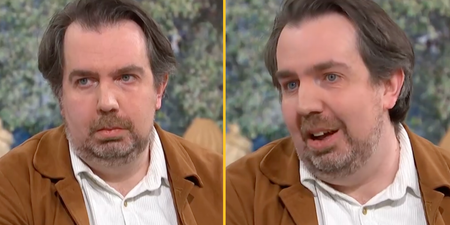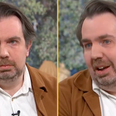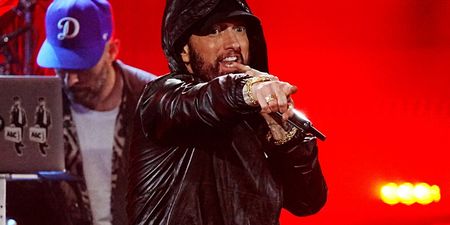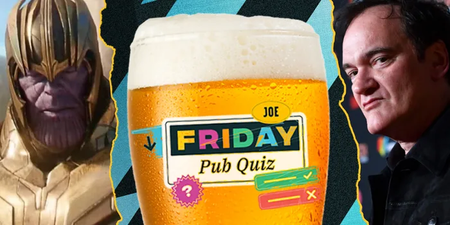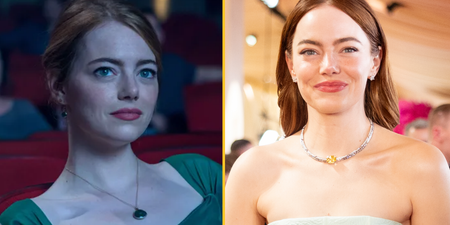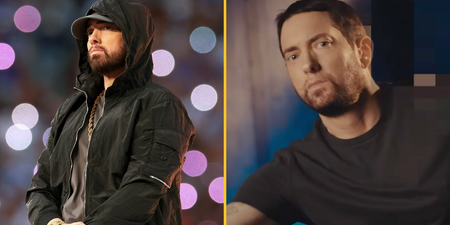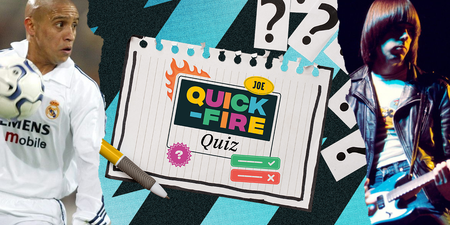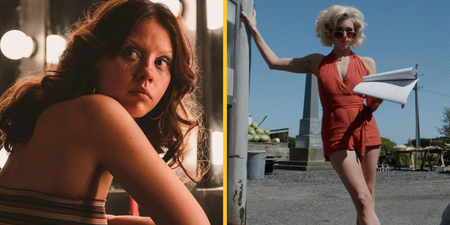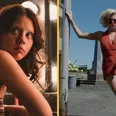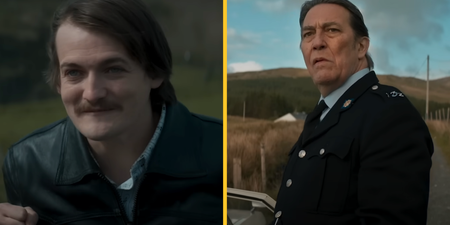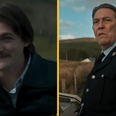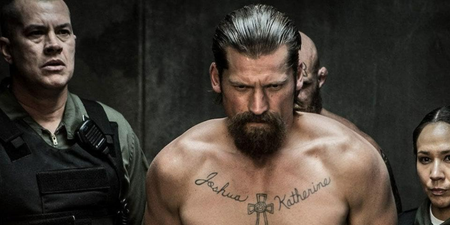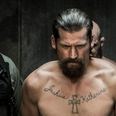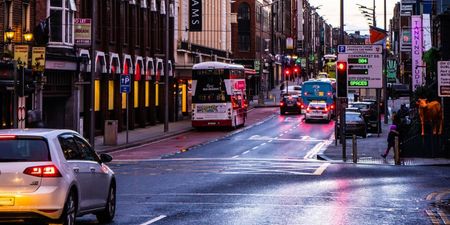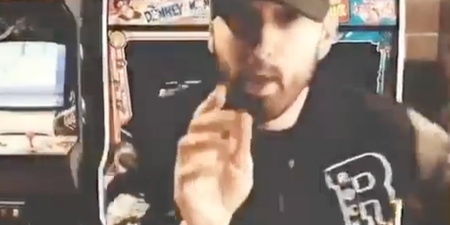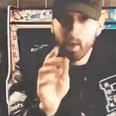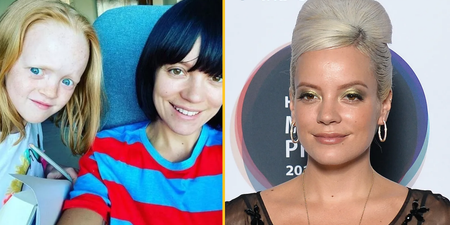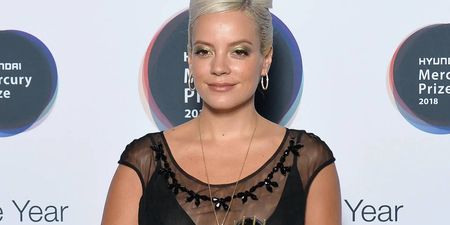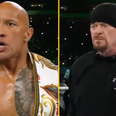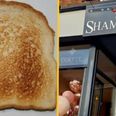John Giles eats, drinks, breathes and sleeps football. There’s no doubt about it, one of Ireland’s greatest football legends has an infectious enthusiasm for the game.
Giles celebrated his 70th birthday this year and in between many poignant tributes on live TV and radio he found time to release an autobiography to tell the full story of his fascinating life.
His book gives a detailed account of the Elland Road glory years as well as his post-retirement career as a straight-talking broadcaster with RTÉ.
JOE whiled away an afternoon with John in Toners pub in Dublin, a favourite haunt of his, to talk about the “outrageous” portrayal of Brian Clough in The Damned United, what Giovanni Trapattoni is doing right for Ireland and why he’s happier as a pundit than as a manager.
JOE: Hey John. What can I get you?
John Giles: A Bacardi and Coke would be lovely.
JOE: Cheers. It’s been a big year for you. Did you feel now was as good a time as any to bring out a book?
JG: I don’t want to be too old or else it’ll be too late. Yes, it’s been a big year for me and I’m delighted to have the book out now at this stage.
JOE: It all started for you, like many footballers, at an early age and your father was a major influence for you at the beginning of your career. Was he the main man behind the football man?
JG: My father was a huge influence. He was a good football man. He managed Drumcondra, which would have been before your time. Drumcondra were a successful League of Ireland team years ago. He had a good knowledge of the game which is very important when you’re young.
When I went to England I was only fifteen. You don’t come under Matt Busby’s influence and Jimmy Murphy’s influence when you’re fifteen. There are a lot of people that can put you wrong, whereas my father’s influence kept me on the right path.
JOE: From your book we see you were a messer in the dressing room at times. Throwing water over Big Jack and so on. Was that a regular type of occurrence when you were playing?
JG: An old saying in football is: “You go into football when you’re 15 and you come out when you’re 35 but you’re still only 15”. That’s what makes a footballers life so enjoyable.
I was at Leeds for 12 years and most of the lads were there for the same time. It creates a good atmosphere. I remember I used to be thinking in the morning before training: “What sort of devilment can I get up to today?” Only juvenile stuff, mind.
Training was very important but the banter was great too.
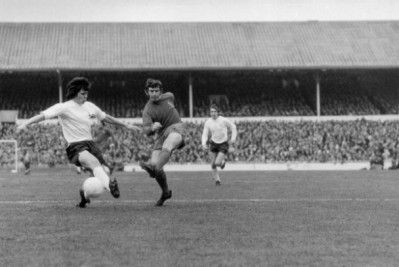
Giles (centre right) in action for Leeds United, dueling for the ball with Steve Perryman of Tottenham at White Hart Lane on 29 January, 1972
JOE: The game has evolved so much between the 60s and now. What do you think are the major differences between the two eras?
JG: Certainly conditions have improved enormously. You see pitches now at the end of the season and they’re still well grassed. In my day it was okay to play in the muddy conditions and then in the spring there’d be no grass. The conditions for the players are much better now.
In the 60s and 70s there wasn’t as much protection for skilful players as there is today from the referees. You had to commit grievous body harm before you got booked in my day. That wasn’t so good.
Also, what we didn’t have in those days, which is a draw back today, is the diving and the feigning of injuries. That’s a bad thing in the game. I fear for the game in certain ways because of that – I fear that supporters are getting fed up of it.
JOE: In your opinion, who is the best player in the world at the moment?
JG: In my day Beckenbauer was the best defender, Bobby Charlton was the best midfielder and Pelé and Maradona were the best in attack but, of course, they all played in different positions. The most valuable players are usually goalscorers. I think right now the outstanding player is Lionel Messi. Iniesta and Xavi in the middle of the field are both outstanding players also. It’s no coincidence that they all play for Barcelona.
JOE: And who’s the best you came up against and played alongside?
JG: Both with and against, it had to be Bobby Charlton. I played with Bobby for Manchester United and Leeds United. A wonderfully gifted player. Very quick, a great dribbler of the ball, great control, both footed, great shot on both feet and could score goals. I think he scored 250 goals for Manchester United.
JOE: Dipping into the past, do you think the reputation of the Leeds United side was overstated by the media in the 60s and 70s?
JG: Definitely. I think it’s been overstated since if you read the papers now. I get irritated and surprised when people think the Leeds United team bullied everybody off the pitch. I try to make the point in my book that that was the culture of the day. Chelsea had Harris, McCreedy and Osgood. All the teams had three or four players who could look after themselves.
When we went to Everton, they had guys like Jimmy Gabriel, Sandy Brown and Johnny Morrissey. All top class players. But they could look after themselves.
The impression you get sometimes is that Leeds United bullied all these guys. We were no angels by any means, but what they stop short of saying is “but they were a great team”. And that irritates me. I don’t mind people saying that Leeds over did it sometimes as long as they give balance and due credit.
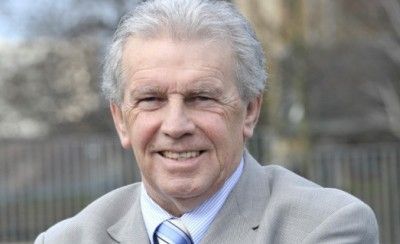
JOE: You were aggrieved about your portrayal in the book, The Damned United. How much of what was in there was factual?
JG: The book was outrageous. What the author, David Peace, said in his book was, ‘this is fiction based on fact’. He was also saying, ‘I’m not saying this is the truth but this is my interpretation of what happened’. Anybody can put an interpretation on what happened, which means it’s not true, but he didn’t go out of his way to find out the truth. For example, he didn’t talk to me or any of the other lads I know of to find out the facts.
He had me in first name conversations with Brian Clough that never happened. He portrayed Brian Clough as a raving lunatic. That wasn’t true either. Clough was a very intelligent guy and, in my opinion, a football genius. Although I didn’t get on with him very well I thought his portrayal was outrageous and factually incorrect almost all along the way. The author said he was happy about the interpretation of his book in the movie.
The movie was a misinterpretation of his book which was a misinterpretation in the first place. If you look at the movie, in one part they have everyone getting off the coach a couple of hundred yards from the ground and things like that never happened.
Brian Clough waiting in the boardroom during the match and not watching the game? That never happened. It’s a shame that everybody assumes what’s in the book and movie is true. People say to me: “You didn’t come out of the book very well, did you?” I laugh and say “no” because those things didn’t happen.
JOE: You went as far as taking libel action over your portrayal in The Damned United. Were you happy with the outcome?
JG: I did take action. They agreed that in the second edition of the book they would take out what I had objected to. I couldn’t do anymore after that. They paid costs but I didn’t do it for the money. It was a protest. I was the only one that played a part in the book. The likes of Don Revie, Billy Bremner and Brian Clough are all dead. So you can’t libel the dead. So I did it as a protest on their behalf. This fella thought he could do what he wanted. I wanted to show people that this wasn’t the truth.
JOE: You put an end to your managerial career in 1985. Did you feel that things were getting too cut throat?
JG: I never enjoyed management. You’re responsible to the directors, to the players, to the media and to the fans. It’s a very difficult job. But also what I found in management at West Brom is that you don’t really have as much power as supporters think you have.
For example, I couldn’t agree terms with players without the approval of the board. I wasn’t in control of that. At West Brom there wasn’t any money available for transfers but when Paul Mariner became available, one of the directors said: “Oh, I think we can raise the money for him.”
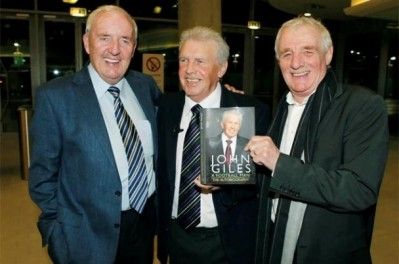
The three amigos: Bill O’Herlihy, John Giles and Eamon Dunphy at the launch of John’s autobiography
I said: “Well what you’re saying is, if you fancy the player then we can raise the money but if I fancy the player and you don’t then we don’t have the money.” I just felt I was never really in control in the way that I should have been. I enjoyed mixing with the players but apart from that I didn’t enjoy my time as a manager.
JOE: What did you make of Chris Hughton’s sacking? He got a raw deal, didn’t he?
JG: A terrible deal. Chris was very badly treated. He did a great job with Newcastle. I’m not a great lover of Allardyce but he was treated poorly as well. The new owners couldn’t see themselves getting along with Big Sam in the future because they were putting names forward for players they wanted to sign that he didn’t agree with. A lot of managers don’t have the power that fans think they have.
JOE: What do you think of Giovanni Trapattoni? Is he doing the job right?
JG: Trapattoni has been a great pro. If you look at his CV he’s done it over many years. I think what you’ll find with managers is that not everybody is going to agree with what that do. He’s definitely brought a discipline and professionalism to the Irish team.
JOE: Do you think we will qualify for the European Championships?
JG: I think we have a good chance. It’s very open. I don’t think there’s any team in it that we can’t get a result against. Russia played well against us and they’re dangerous. It’s all dog-eat-dog at the moment but we’re still there. One step at a time and you never know what’s going to happen.
JOE: With players like Seamus Coleman and Ciaran Clarke blossoming in the Premier League with their respective clubs, do you feel the future for Irish football is bright?
JG: I think so, yes. International teams evolve, you can’t hurry them along. You’re only as good as the players you have at the clubs. We have young Coleman, Keith Fahey, Greg Cunningham, Shane Long and lots more. There’s plenty coming through and it’s promising. I think they will come good.
JOE: I saw you on Miriam O’Callaghan’s show with Eamon Dunphy and the lads recently, having a sing-song and a bit of banter. Do you get to hit the town much with Eamon and Liam?
JG: Not a whole lot. The Champions League finishes quite late. We’d be on the air from 7pm and we’d be off an 11pm. You get tired by then so a lot of the time you don’t feel like going out. We do occasionally go out for a few, though.
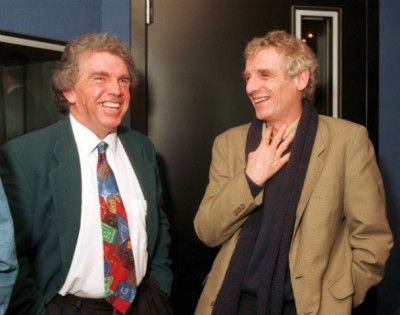
Happy days: long-time pals Giles and Dunphy have a laugh back in 1997
JOE: A football pundit is a dream job for most men. You look as though you’ve always enjoyed it, but is there any intention of stopping?
JG: It’s a dream job for me as well. As I explain in the book, when I finished in management I had no intention of going into television. No ambitions in it at all until Eamon got me on the ’86 World Cup and it took off from there. It keeps me involved in the game without the extra pressures of management. People are used to the programme and all of us by now. The big thing is that we give an honest opinion. Everyone’s not going to agree with you but they get an honest version from us.
JOE: Is that the major difference between the RTÉ team and the BBC pundits?
JG: Well that’s what the viewers say to me anyway. It’s what you really feel about the game and we stick to that.
JOE: John it’s been a pleasure chatting. Take care.
JG: And you. Bye.
To purchase John Giles: A Football Man – My Autobography, click here.
LISTEN: You Must Be Jokin’ with Aideen McQueen – Faith healers, Coolock craic and Gigging as Gaeilge
